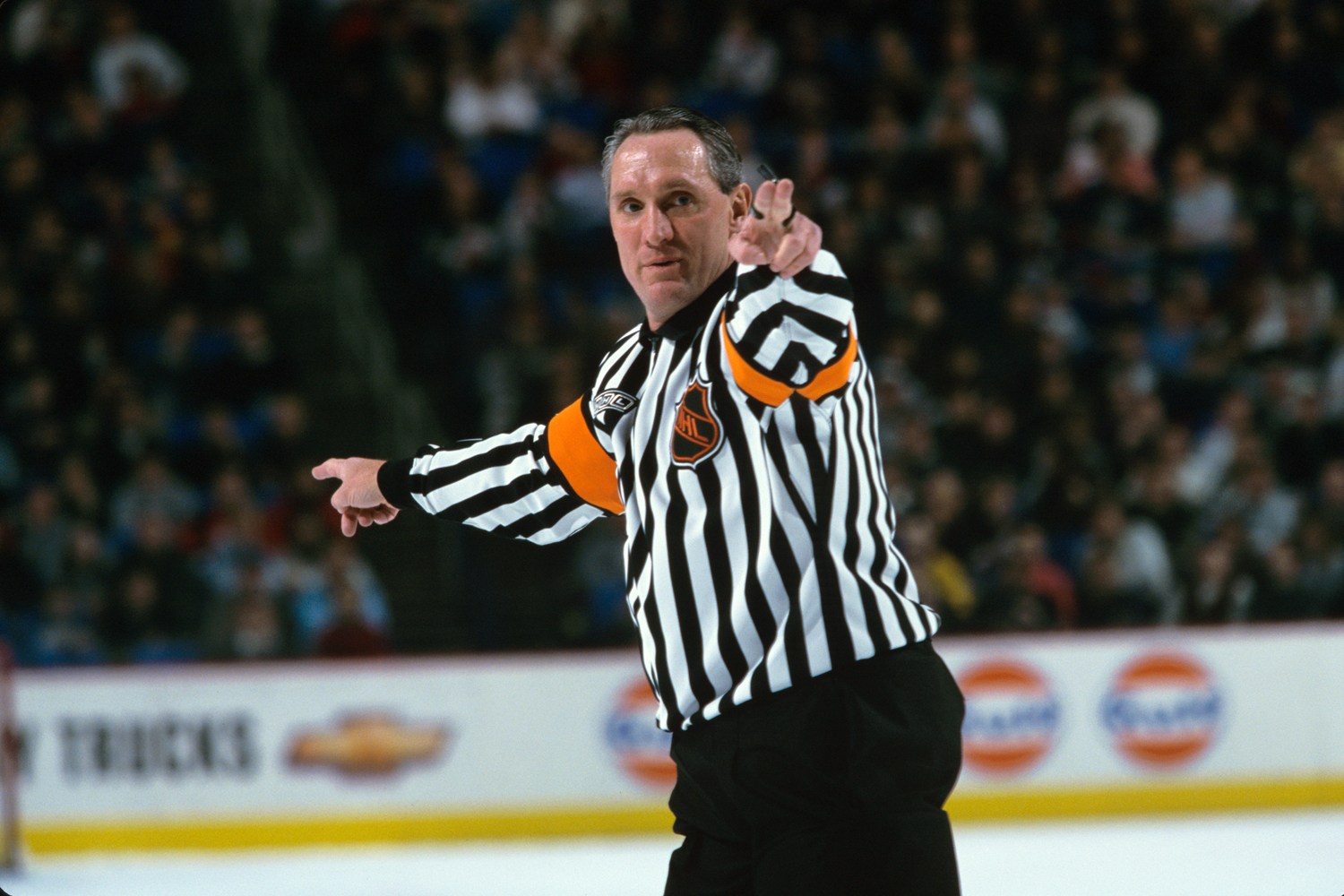
A look Paul Stewart’s NHL Officiating Career
In sport, there are officials who are students of the game and some who are just born to be there. For New Englander Paul Stewart, a passionate ‘character’, who officiated in the National Hockey League (NHL) for twenty years, he knew as a child it was his destiny.
Born into a hockey family, Stewart is the grandson of Bill Stewart Senior, who was an NHL referee, a Major League Baseball Umpire (MLB) and the Coach of the NHL’s Stanley Cup Champion Chicago Blackhawks in 1938. His father, Bill Stewart Jr. coached hockey, baseball and football and was an accomplished collegiate official in hockey, football and baseball, including the umpiring the 1971 college baseball World Series.
“I came from a family of sports officials,” explained Stewart. “When I was a boy, I was by my father’s side, when he officiated a lot of his big games. Watching my dad, I learned about work ethic, commitment, dedication and perseverance.”
Stewart, who is the only American to ever play and officiate in the NHL, often thought it was his destiny to be an NHL official, but not because he was entitled as a matter of his birthright.
“A lot of people assumed that because of my family history that a path into the NHL was paved for me,” Stewart explained. “But that couldn’t be further from the truth. My dad and grandfather were examples of perseverance and work ethic, which were passed down to me from them and these were the only reasons, I had the career I had. I continuously worked at it to be one of the best. And it came with lots of challenges.”
“I was an American in a Canadian sport,” he said of one of the challenges he faced. “And I had bosses who never acknowledged my abilities and tried to engage me in psychology battles to repress me. Luckily for me, I had support from other places and did not spend any energy letting these people ‘rent a room in my mind’,” he colorfully explained. “I just kept working hard and I knew as long as I was accepted by the players and coaches, that I would be okay.”
“My father used to say to me, ‘they can give people positions of power but that doesn’t mean that those people can put three ounces in a two-ounce glass. They simply don’t have the capacity’,” Stewart said. “They can knock you down and beat you up today, but just keep shaking the bottle because the cream always comes back to the top.”
Being confident in his abilities regardless of the criticism of his superiors, allowed Stewart to continue to work hard and become one of the most notable NHL officials in the history of the league. In sport, an official’s success can be directly related to their belief in their abilities to perform on the rink and achieve their goals. One of the ways Stewart learned to be confident was through vicarious experience, watching his family perfect their craft of officiating, as a young boy. Through vicarious experience people see those similar to themselves succeed through sustained effort, which in Stewart’s case, raised his belief in his capability to master the same activities required to succeed. And succeed he did.
“My father was not only a great example for me, but offered a lot of support,” he explained. “My dad, grandfather and other mentors taught me how to be a teacher, leader and a boss, especially when facing adversity.”
But Stewart always had something else going for him, his motivation and passion for the sport. “I just loved being out on the rink,” he said, “That’s what always worked for me. When ever I felt any fear or nervousness, it just dissipated, because I could not let it stop me from being out there.”
“I always felt like the secret to my success was that I was so very happy when I walked on the rink,” he added. “When I am on the ice, I always felt like I was born to be there. I don’t think I ever really had any fear, just a lot of anxious energy because I could not wait to get out there.”
Stewart explained that besides his work ethic, dedication and passion for the game, part of his success was learning to deal with pressure. “You can’t get better until you work better games, be in the spotlight and face that pressure,” he explained, which is part of why referees should get as much experience at all levels as they possibly can. “Learning how to deal with people is the key,” he added. “And if you are any good, there is no pressure.”
Stewart’s secret to success…..”When you show up to the job site, bring your entire toolbox – mental, physical and emotional. Bring everything you are to the game and then you will be a success.”
Read more about this colorful and successful official in the upcoming months on the website – theofficialsmind.com or you can find out more about this legend in Stewart’s recently book, ‘Ya Wanna Go?’


